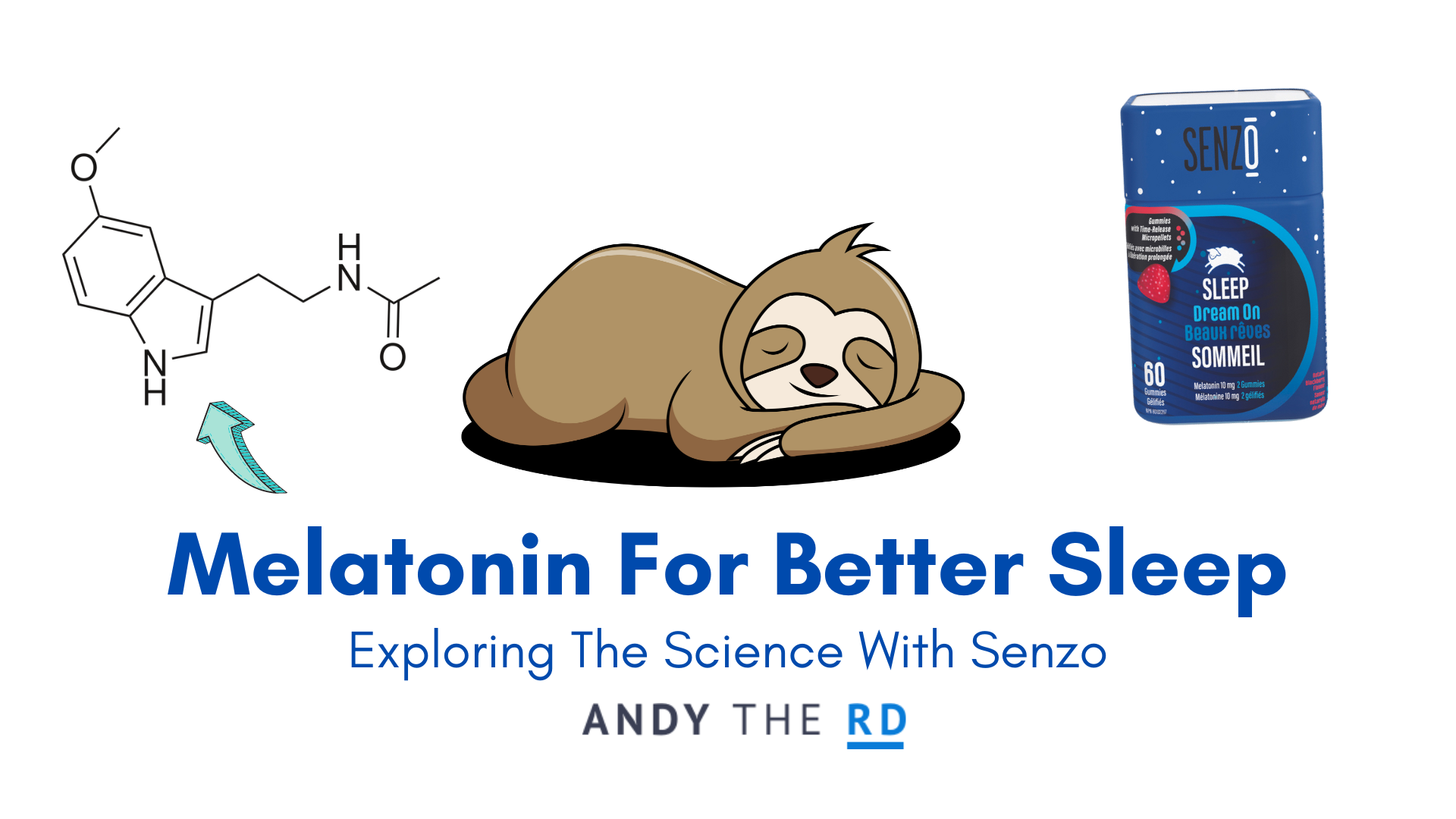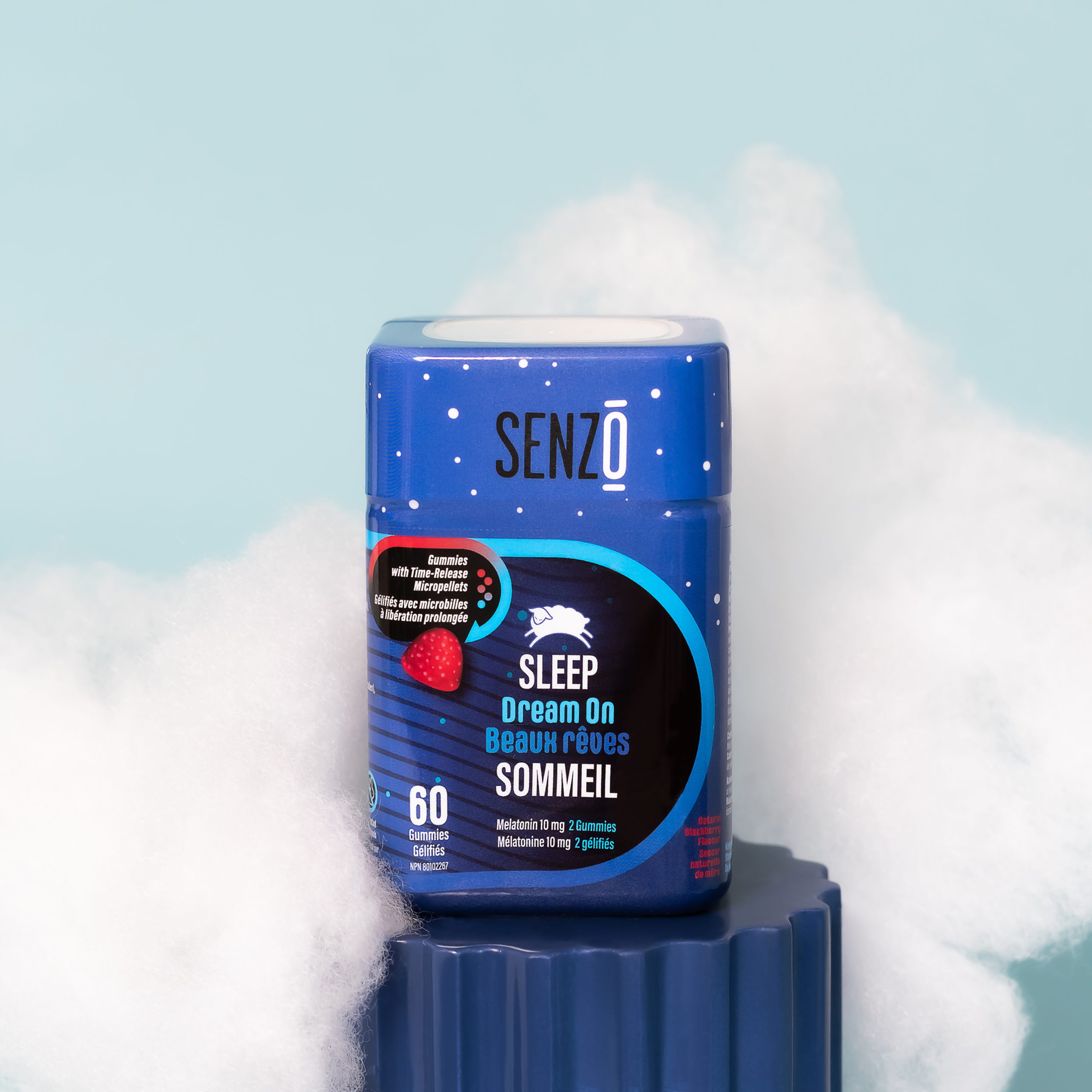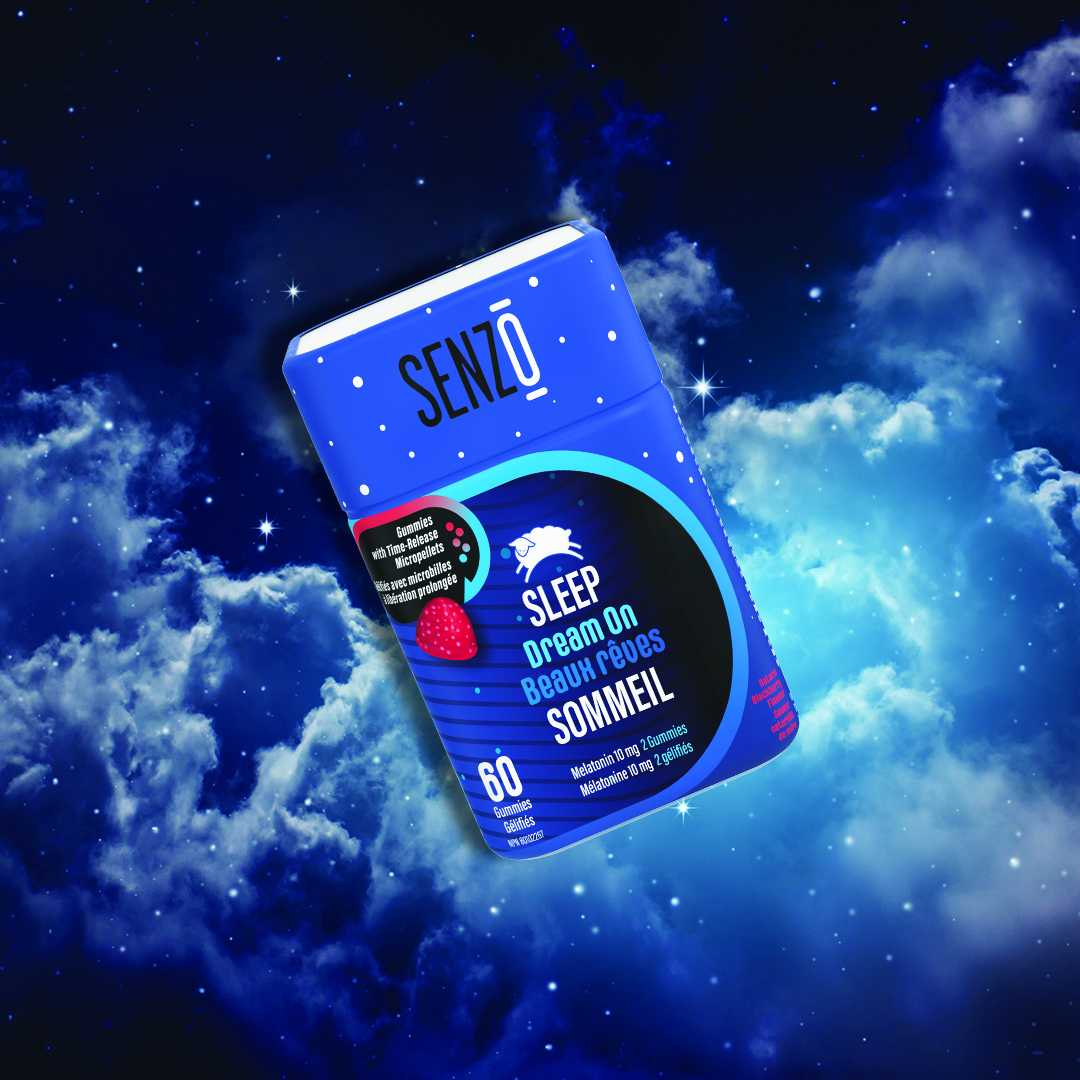I’ve got the great fortune today of presenting content in collaboration with Canadian gummy supplement manufacturer Senzo and was really spoiled for choice in terms of which of their marquee products I was going to choose to discuss.
As you can see, I’ve landed on melatonin – the aptly named sleep hormone which Senzo offers as the even more aptly named “Dream On” product.
My interest around melatonin has piqued recently due to my own personal sleep struggles, but also given the fact that many of us have fallen into the same boat in part due to the unique challenges of the last several years.
In fact, when we think of things from the immune health perspective, it is interesting to note that those with sleep deprivation were more likely to be hospitalized with COVID-19.
Given how important sleep is to quality of life and other important outcomes related to mental health, all of a sudden supplementation around enhanced sleep quality takes on a more important role and certainly has garnered increased attention from the general public.
I’m also keenly aware that sleep and mental health form a bi-directional relationship whereby better sleep can improve mental health, but declining mental health can equally detract from sleep.
While there is no one solution to this problem, strategic melatonin use may play a role.
But is it up for the task?
Let’s find out.
Melatonin 101
Melatonin is a hormone naturally produced by the human pineal gland and is perhaps most well known for its role in regulating the human circadian rhythm or “sleep-wake” cycle.
It facilitates this cycle by acting on a number of bodily receptors including through regulating your body’s heating/cooling mechanisms and also happens to be a potent anti-oxidant.
The optimization of one’s circadian rhythm, as I mentioned earlier, has carry over effects to other aspects of healthy functioning including mental health, immune functioning, blood sugar regulation and so on.
While your body does produce melatonin naturally, the last several decades has seen increased interest around oral melatonin supplementation (as in Senzo’s Dream On gummy) as a means to potentially induce sleepiness as well as sleep quality and duration in those who struggle in these areas.
Melatonin – Recent Studies
The discovery of melatonin is around 60 years old, with higher quality studies emerging around its use more regularly in the last two decades.
In today’s post, I want to focus on recently published research to determine whether or not initial excitement around the use of melatonin as a sleep aid continues to be supported by scientific evidence.
Here’s what I found:
A 2022 systematic review out of the Journal Of Neurology that looked only at randomized controlled studies found that melatonin supplementation had the potential to improve sleep quality particularly in those with respiratory conditions and primary sleep disorders.
A primary sleep disorder is one in which sleep duration or quality is compromised but not due to a known other cause like depression, anxiety or painful conditions like arthritis.
The effects of melatonin supplementation on secondary sleep disorders, which may be caused by a variety of conditions, have not been as well studied but a 2019 systematic review and meta-analysis out of Frontiers In Neuroendocrinology looking specifically at these conditions found some evidence that melatonin use helped individuals fall asleep more quickly and sleep for a longer duration.
There is also recent evidence to suggest that melatonin supplementation may be uniquely useful in the context of sleep issues in those living with Parkinson’s Disease.
Melatonin has also been described by Cochrane Review as “remarkably effective” at preventing/reducing jet lag.
Melatonin – Dosage, Usage, Side Effects?
There a number of considerations which must be taken into account when considering melatonin supplementation, some of which can only be addressed between yourself and a healthcare provider.
The optimal dosage, for example, may vary from person to person and studied dosages vary from 1 mg to 10 mg, with the most likely adverse effect being daytime sleepiness the next day (1.66% of users) and average duration of use being 4 weeks or less and it being considered generally safe if used in this context.
A 5 mg dose, for example, was found to be slightly more effective than a .5 mg dose when used for alleviating the side effects of jet lag.
Studies have also demonstrated that it takes just under an hour for melatonin to reach peak levels in the blood after use which supports the general guidance I’ve seen around using it 30-60 minutes before bed.
Melatonin as I perceive it discussed in the scientific community, is very much considered a strategic supplement to be used as needed and not indefinitely or for an extended/consecutive time period with emphasis being placed on starting at a smaller dose and working upwards as needed towards a maximum of 10mg.
Other Safety Considerations
Melatonin is not indicated for use if you are pregnant or breastfeeding.
Those with pre-existing health conditions on multiple medications should consult their healthcare practitioner before use to ensure suitability and seek further support if sleep issues are not resolve within the first 4 weeks of melatonin use.
Final Thoughts
I have to thank Senzo for facilitating today’s collaboration and discussion on the science behind melatonin, the marquee ingredient of their “Dream On” supplement which contains 5 mg of melatonin per gummy making it an ideal product for those who not only enjoy gummies, but benefit from a slightly higher melatonin dose in the 5-10 mg range.
You are of course also supporting a Canadian company, something I value as you guys well know in all of my writing and content creation endeavours.
Hope you enjoyed today’s article.
Until next time,
Andy De Santis RD MPH
Bonus Sleep Content
A 2020 systematic review and meta-analysis out of the Journal Of Clinical Medicine found that, in addition to melatonin supplementation, meditative movement activities (such as yoga and tai chi) may have some potential to improve sleep quality.





